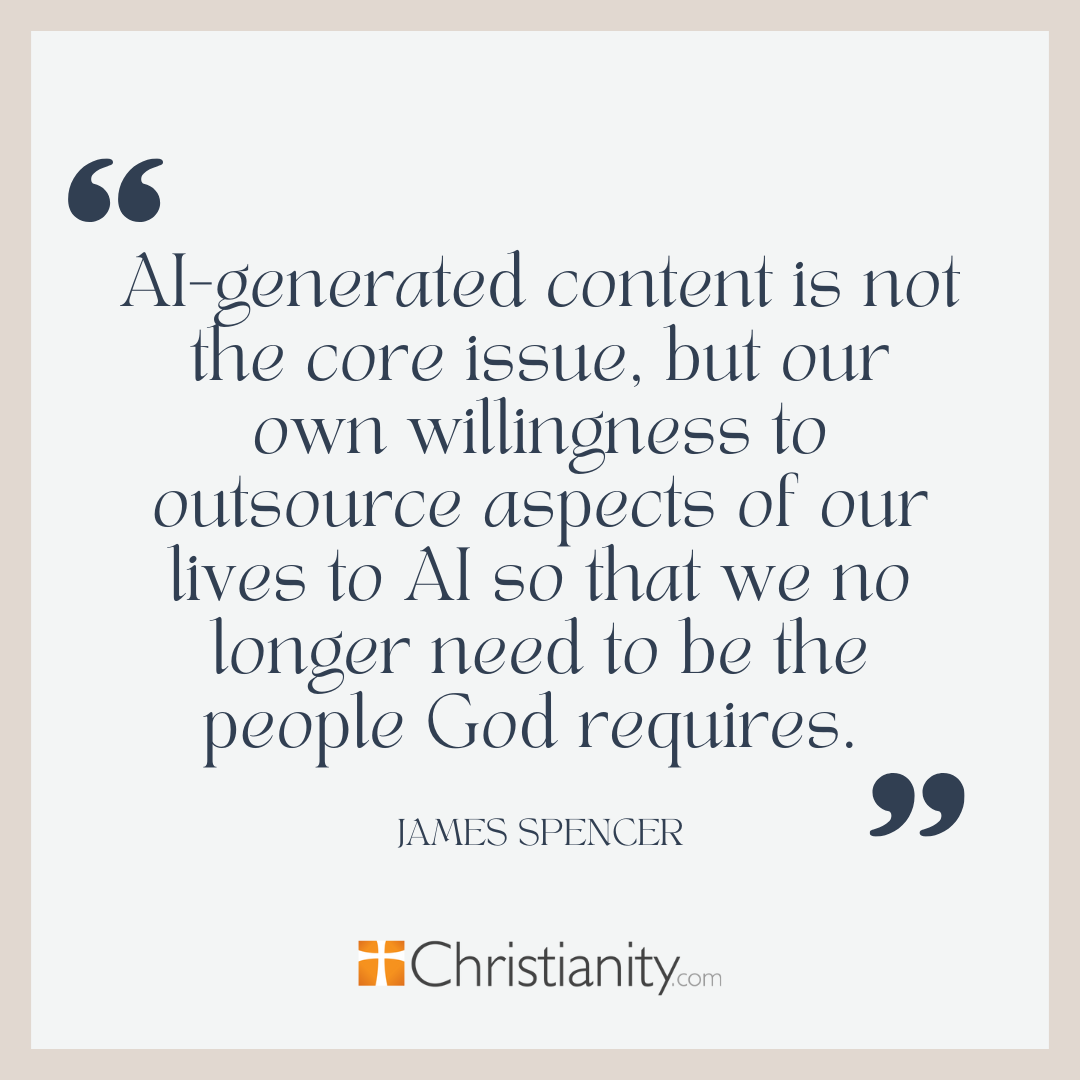The Velvet Sundown won’t become the greatest rock band of our generation, but none of the band members will care—they aren’t real. Unlike other “fake” acts (remember Milli Vanilli), The Velvet Sundown doesn’t lip sync—they are AI-generated. Currently, The Velvet Sundown’s Spotify bio describes the band as “an ongoing artistic provocation designed to challenge the boundaries of authorship, identity, and the future of music itself in the age of AI.” The band has more than 1.1 million monthly listeners.
Perhaps more interesting than the band is the “creation” of Andrew Frelon, a fictional spokesperson for the band who was never actually affiliated with The Velvet Sundown project. Andrew Frelon isn’t AI-generated. He is a real guy—as far as we know—who was interviewed by Rolling Stone Magazine prior to revealing the hoax on Medium.
The Velvet Sundown saga combines multiple “fakes.” First, there is an interesting case to be made against AI-generated music. Human relationships are not solely transactional—the product (i.e., the song or album) is purchased, but we often end up developing a relationship with those who produced it. That connection reflects our encounter with the human or humans through the music they produce. It doesn’t mean we have a close personal relationship with our favorite musician, but the song mediates a certain presence and interaction with the human on the other side of the music.
AI-generated music also allows for this sort of connection, but it is at least one step removed. The Velvet Sundown has humans behind the music somewhere—we just aren’t sure where. The people who initiated and manage The Velvet Sundown are relatively anonymous, making it difficult to establish any sort of human-to-human connection.
When using AI to generate content or consuming AI-generated content, we need to understand what we are giving up. We are creating more distance between us and the next human. That isn’t always a bad thing. There are certainly good reasons to use AI to generate content or to consume AI-generated content. We don’t need to adopt an all-or-nothing approach. Still, we need to consider how and when AI-generated content may disadvantage content creators economically or, perhaps more importantly, diminish the benefit to and importance of the human that stands behind a song, piece of writing, image, or video.

For instance, to write this piece, I’ve spent time reading philosophical works, pondering scripture, familiarizing myself with the latest news, etc. These activities are formative for me. They require me to put in effort that influences my perspective and character. The writing process is beneficial to me as a writer. Opting out of human content and into AI-generated content has a diminishing effect on human content creators, not just me, but anyone creating content.
Beyond the diminishing effect, we need to recognize that AI-generated content is produced by disembodied or differently embodied “entities.” An AI may be able to write a song about the terrors and tragedies of war, but the AI has never really experienced it. Anything it happens to get right is second-hand—either fed to it by a human programmer or pulled from the insights of humans who have actually experienced war in some way. Humans experience the world as embedded and embodied creatures. Our insights about the world are informed by the way we embody the world. No matter how intelligent AI may become, it can’t know in the same way humans do. The embodied experience that informs human knowledge results in a flawed, beautiful genius that AI can only ape. AI can’t replace humans because it will always lack the knowledge of being an embodied human made in God’s image.
The second interesting aspect of The Velvet Sundown situation involves Andrew Frelon, the fabricated movie producer. The person behind Frelon used available technologies to spread misinformation about the band and his relationship to it. The Frelon hoax highlights the distance technology can create between human interactions mediated by technology and the way that distance can be exploited by bad actors. The relative anonymity possible in online interactions can leave us without any real information about a source. To be fair, there is always a degree of distance between people that can be exploited even without technology—technology just makes it much easier.
As AI-generated content becomes more prevalent, Christians will need to consider when and how to interact with it. Assuming we can distinguish AI-generated content from human content, how do we discern when generating or consuming such content is appropriate? We need to remember the chief aim of humankind—to glorify God and enjoy him forever. I don’t think The Velvet Sundown, as a singular example of AI-generated content, threatens the chief aim of humankind. As an increasing aggregate, however, AI-generated content outsources the production of art and music, the capturing of beauty and tragedy through the creation of images, and even the use of humor. As we decide which AI-generated content to create and consume, we need to make sure we don’t lose sight of our chief aim.
We cannot outsource our chief aim to AI. As such, when we think about generating and consuming AI content, we need to recognize and work within the limits of that content. We may find it helpful to think about AI-generated content in terms of subtraction, not addition. While we are accustomed to thinking about the benefits of AI, we need to consider the drawbacks as well. How is it that AI-generated content detracts from humanity’s ability to glorify and enjoy God?
AI will allow us to do things we couldn’t do before. In some cases, that will be good—it will allow us to equip the saints, proclaim the gospel, and witness to Christ in ways we couldn’t before. In other words, AI will tempt us to ignore our responsibility. Ultimately, AI-generated content is not the core issue, but our own willingness to outsource aspects of our lives to AI so that we no longer need to be the people God requires.
Photo Credit: Chat GPT





